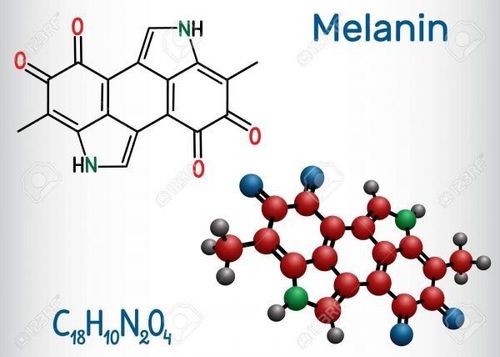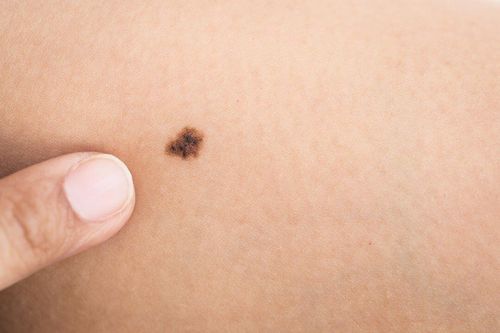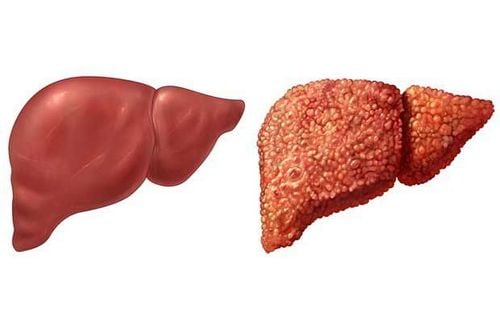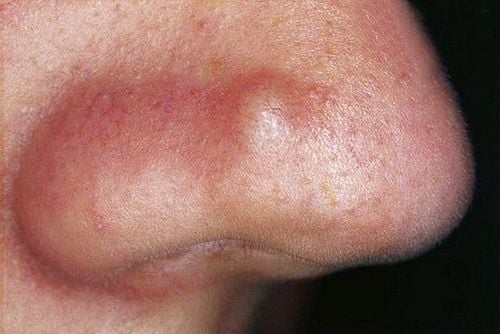Article authored by MSc, MD Mai Viễn Phương – Specialist in Gastrointestinal Endoscopy, Department of General Medicine, Vinmec Central Park International Hospital.
Itching skin refers to a sensation of discomfort and irritation that compels one to scratch. Itchiness may be a symptom of certain cancers but can also result from the side effects of cancer treatments.
1. Which Types of Cancer Can Cause Itching Skin?
A 2018 study involving 16,000 individuals in the Johns Hopkins Health System revealed that patients experiencing generalized itching were more likely to have cancer compared to those who did not experience itching. The most common types of cancer associated with itching include:
- Skin Cancer: Persistent itching is one of the most prevalent signs of skin cancer. This is because skin cancer is often identified through new or changing spots on the skin. In some cases, itchiness draws attention to these areas.
- Pancreatic Cancer: Individuals with pancreatic cancer may experience itching, though it is not a direct symptom of the cancer. Jaundice, caused by tumors obstructing the bile duct, can lead to the accumulation of bile chemicals in the skin, resulting in itchiness.
- Lymphoma: Itching is a common symptom in cutaneous lymphoma, T-cell lymphoma, and Hodgkin's lymphoma. It is less frequent in most non-Hodgkin's lymphomas. This type of itching is often caused by immune system chemicals reacting to lymphoma cells.
- Polycythemia Vera: Itching can be a sign of this type of cancer, particularly after bathing in hot water.
- Bile Duct Cancer
- Gallbladder Cancer
- Liver Cancer
2. Cancer Treatments That May Cause Itching
Itching caused by cancer treatment may be an allergic reaction. Some treatments associated with prolonged itching include:
- Chemotherapy
- Radiation Therapy
- Bortezomib (Velcade)
- Brentuximab Vedotin (Adcetris)
- Ibrutinib (Imbruvica)
- Interferon
- Interleukin-2
- Rituximab (Rituxan, MabThera)
Itching can also result from hormonal therapies for breast cancer, such as:
- Anastrozole (Arimidex)
- Exemestane (Aromasin)
- Fulvestrant (Faslodex)
- Letrozole (Femara)
- Raloxifene (Evista)
- Toremifene (Fareston)
- Tamoxifen (Soltamox)
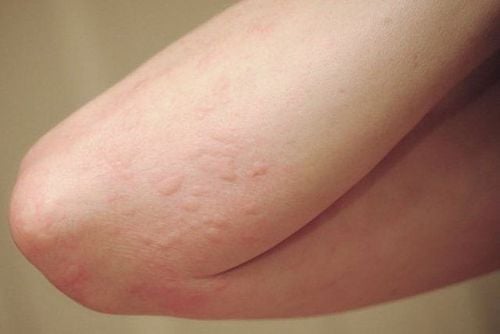
3. Other Possible Causes of Itching
Itchy skin does not necessarily mean you have cancer. Common causes include:
- Dry Skin: Severe dryness can cause intense itching. A dermatologist may recommend skin care adjustments and liberal use of moisturizers to alleviate this.
- Insect bites: When bitten by mosquitoes, the cause of skin itchiness is typically evident, and the discomfort usually subsides quickly. However, when insects live on the skin, the itching can persist and become uncontrollable. Common insects that may cause prolonged itching include bedbugs, lice, and mites (scabies).
- Allergic skin reactions: Our skin can develop an allergic response to numerous substances. One of the most common allergens causing skin reactions is nickel, which is found in various items we encounter daily. Products containing nickel include mobile phones, jewelry, eyeglass frames, zippers, and belt buckles.
- Reaction to plants or marine organisms: Plants such as poison ivy are well-known for causing itchy rashes, but they are not the only plants capable of triggering such a reaction. If you are unaware that a certain plant irritates your skin, the itchiness may persist for an extended period. Additionally, marine organisms can also lead to itchy rashes after water exposure.
- Nerve-related issues: When a nerve malfunctions, it can result in skin itchiness. Damage along a nerve pathway caused by illness or injury may induce itching. This type of itchiness typically occurs in a specific area of the body and does not present with visible rashes. Conditions that may lead to this type of itching include strokes and multiple sclerosis.
4. When Should You See a Doctor About Itchy Skin?
If you suspect that itching may be a sign of cancer, seek medical attention for a thorough examination, diagnosis, and appropriate intervention. Symptoms warranting a medical consultation include:
- Itching that persists for more than two days.
- Dark-colored urine resembling tea.
- Yellowing of the skin.
- Scratching the skin to the point of ulcers or bleeding.
- Worsening rashes despite using ointments or creams.
- Bright red skin or crusted blisters.
- Pus or foul-smelling discharge from the skin.
- Inability to sleep at night due to itchiness.
- Signs of a severe allergic reaction, such as difficulty breathing, hives, or swelling of the face or throat.
In summary, various potential causes of itching exist. While it may indicate certain types of cancer or result from cancer treatments, it is often linked to more common conditions. If you experience unusual or persistent itching, consult a healthcare provider to rule out serious underlying issues. Your doctor can help determine the specific cause and recommend strategies for relief.
For more useful information, be sure to follow Vinmec.com.
To arrange an appointment, please call HOTLINE or make your reservation directly HERE. You may also download the MyVinmec app to schedule appointments faster and manage your reservations more conveniently.
